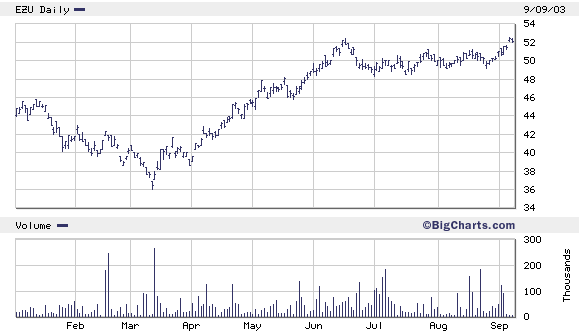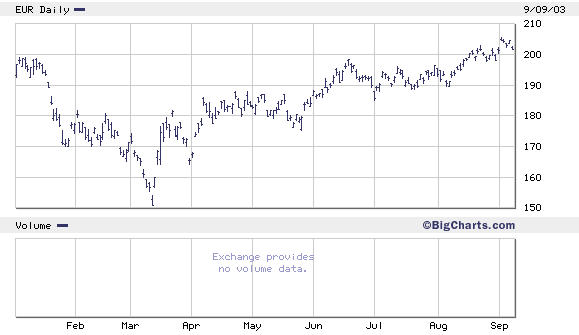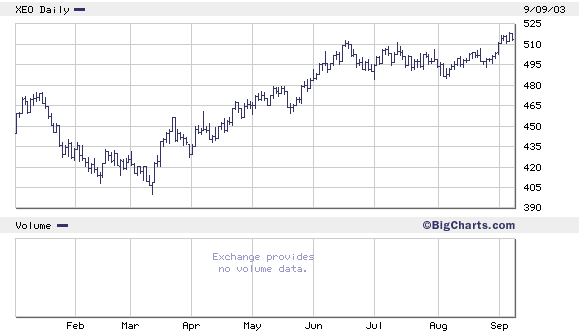Someone Call the U.N.
The Economist is reporting that Germany and France are in violation of the EU's stability pact. Perhaps we need more U.S. troops on the ground in France. This bilateral adventurism must stop. GERMANY and France, so long the European Union’s head partnership, have become partners in crime. Last Friday, Germany confessed to the European Commission that its budget deficit for 2003 would breach the stability and growth pact for the second year running. The pact, a largely German creation, is meant to stop members of the euro area undermining the single currency through fiscal irresponsibility: countries are permitted to run deficits of no more than 3% of GDP. Germany admitted to a deficit of 3.5% last year and expects one of 3.8% this year. Not to be outdone, France on Monday owned up to a projected deficit of 4% this year, to follow a deficit of 3.1% last year. Of the two, Germany was the more repentant sinner. Hans Eichel, the German finance minister, insisted that he was still hoping to abide by the pact next year; Jean-Pierre Raffarin, the French prime minister, has already given up on that goal, according to Les Echos, a French newspaper. This is exactly the type of thing that will eventually make the euro every bit as dangerous as the dollar. In fact, there are few safe havens when it comes to paper money. Still, the fortunes of the dollar and the euro wax and wane, along with gold. Look for a strong dollar, not because of record U.S. debt, but because of stronger U.S. economic growth than in Europe, which announced yesterday it slipped into recession in the second quarter. Germany, France, Italy, and the Netherlands all saw growth reverse in the second quarter. This kind of news won't make the Swedes anxious to join the EMU when they vote in four days. And it's certainly not going to improve the chances of England joining the Euro in the next year. You'd think it would also be near-term negative for European stocks. However, the weaker euro boosts European exports...so some of the effect of negative GDP growth is offset by optimism over higher exports. Optimism like this is ultimately misplaced. Europe has chronic macro economic problems. It's being out consumed by the U.S., out produced by China, and out saved by Japan. I'm looking to trade on the euro zones weakness three ways. First...there's an iShare that targets the movement of the currency. Chart is below. Regrettably, no options trade on it.
 Next, the AMEX Euro top 100 Index. But for lack of liquidity, it would be a great proxy to be bullish or bearish the euro zone
Next, the AMEX Euro top 100 Index. But for lack of liquidity, it would be a great proxy to be bullish or bearish the euro zone  Then there's XEO, the S&P Euro 100 Index. Here, you haveliquidityy, and some reasonably priced options.
Then there's XEO, the S&P Euro 100 Index. Here, you haveliquidityy, and some reasonably priced options.
 SOA subscribers be on the lookout for getting in on this trade. The dollar dropped about 3.4% against the euro when U.S. GDP news broke. With euro zone GDP news so negative, the dollar is up against the euro in trading in London this morning. I think we're on an a path to parity, before the dollar standard gives up the ghost altogether. Meaning we may have a small window to be short the euro and make some profits.
SOA subscribers be on the lookout for getting in on this trade. The dollar dropped about 3.4% against the euro when U.S. GDP news broke. With euro zone GDP news so negative, the dollar is up against the euro in trading in London this morning. I think we're on an a path to parity, before the dollar standard gives up the ghost altogether. Meaning we may have a small window to be short the euro and make some profits.

0 Comments:
Post a Comment
<< Home